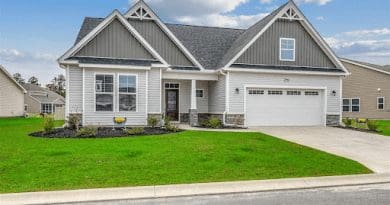Hacks For A Better Home Insurance Policy
The ultimate hack for your home insurance is to get quick help when you need it, high payouts with low deductibles, and the lowest policy fees available. Insurance companies need to make money too, so demonstrating responsible use of your dollars and your possessions, such as cars, will keep your rates lower if you choose to bundle. In this article, we will be outlining all you need to know about home insurance, including, the types, how it benefits you, and hacks for a better home insurance policy.
Without further ado, let’s explore these hacks!
Bundle Your Policies
You can save money on your homeowner’s insurance by bundling it with your automotive insurance. Because your homeowner’s policy is often tied up in your mortgage payment and your mortgage payment is often the biggest chunk of your budget, make sure your family is aware of what this means.
Maintaining a good driving record is critical to keeping vehicle insurance costs low. As your children become drivers, make sure that they are aware of what their actions can do to your household budget if they make a poor choice. Several tickets, or worse, a DUI, can force you to seek out different car insurance. Not only will this raise the price of your vehicle insurance policies, but it can actually raise your monthly mortgage payment.
Check out all the ways that a student-aged driver can demonstrate that they are a good risk. Keeping grades up, avoiding driving violations, and avoiding tickets for poor maintenance such as headlights or license plate lights can all contribute to keeping insurance rates low.
Finally, take a look at the age of the car you’re driving. If your car is older and paid off, you may be able to cut back to just liability coverage. Of course, in the event of a totaling event such as a hailstorm, you would be out of pocket for any glass repair.
Buy The Right Add-Ons
Add-ons to your home insurance policy may be a good choice. For example, if you have a small business and store stock or tools in your home or garage, you may need additional coverage. If you are renting out your space during the busy tourist season, you may need short-term rental insurance in Arizona or other areas where you may own rental space.
Carefully review the electronics coverage in your basic policy. If you have special computers related to gaming or other hobbies, additional coverage may be necessary. For those who work from home, extra coverage to cover your laptop, printer, and scanner may also be a good investment.
Talk to your insurance agent about any plans to rent out a room on a more permanent basis. Many homeowners are taking this step to reduce the burden of their mortgage during times of inflation. Make sure that you’ve purchased the right add-on for a more permanent tenant situation to reduce the risk of loss if such a tenant does any damage or suffers an injury on the property.
Disaster-Proof Your House
Go beyond the minimum when you make repairs. If your house needs a new roof, upgrade your shingles to those with a stronger hail tolerance or a higher UV resistance rating. If your region is getting more earthquake activity, bump up the stabilization on your house.
Take a careful walk around your foundation. If you notice cracks between the soil and the concrete when the soil dries out, you could be at risk of pest invasion or instability of the walls. At the very least, make sure your gutters are clean and functioning effectively to avoid puddling down the foundation in the next heavy rain.
If your region is heating up in the summertime, consider upgrading your windows. Window replacement is an excellent time to inspect the structure of your house in the event of a bug infestation or dry rot. You may choose to add motion detector lights over the windows or glass-break alarms inside the house. Make the corrections and notify your insurance agent of this improvement; not only can these upgrades lower your insurance costs, but you will have increased the replacement value of your home.
Revv Up Security
Increase the security around your home. If you’ve been thinking about adding a security system, contact your agent to see which company can lower your insurance costs.
Make sure you get photos of the improvements that you’ve made, such as
- door cameras
- motion detector lights
- house alarms
If your home is older, carefully review the requirements for your smoke alarms and carbon monoxide detectors. Updating to a hardwired unit with a battery backup can keep you all safer and doesn’t have to break the bank.
If a dog is part of your security system, make sure the pooch you plan on will not be left uncovered by your homeowner’s insurance. Like it or not, there are breeds that your policy doesn’t have to cover. If you’re not sure, call your agent before you go looking for a dog.
Keep An Eye On Your Credit Rating
As noted in the first point above, everyone who uses family insurance can impact the cost by making positive behavioral choices. Smart money management will also have an impact on the cost of your insurance.
If your credit rating is terrible because you’ve come out of a difficult financial patch, do your best to address any balances that have gone to collections to get them off your history; you may be able to get the new owner of the debt to settle. If your credit rating is low because you have a hard time paying debts on time, it’s time to create a weekly date with your bank account and your partner where you sit down and schedule payments for the most recent bills.
Good credit can have an impact on every aspect of your life. If you want a different house, you’ll likely have to apply for a loan. Repairing your credit when you’re ready to move is not a good choice.
You don’t want to find out that your insurance was not sufficient after the fact. Before you make big changes to your property or to the population of your household by bringing in renters, make sure you’ve got the right coverage.
What Homeowners Need to Know About Insurance
When looking for the right home insurance, it is essential to know what is covered and what isn’t. A homeowner’s policy (HO-3) should cover everything, but some things need to be revised.
Here are all the essential aspects of insurance that homeowners need to know about.
Liability Coverage
Liability coverage is an essential part of a homeowners insurance policy. It protects your assets against claims of property damage and bodily injury.
It pays for medical bills, legal defense costs, and property damages in case of a third party’s injury or illness. Some insurers also provide additional living expenses if a person must live away from home for an extended period, such as in a hospital.
Homeowners can choose from eight types of homeowners insurance. Each class covers different aspects of your home. If you’re looking for the best policy, read the plans carefully and ask your agent for clarification.
The standard homeowner’s insurance policy limits are usually high enough to cover damage from fires, theft, and other accidents. But some features of your home may push up your premiums.
In addition to these basic protections, your policy can include a variety of add-ons to protect you from liability and other perils. Depending on your specific needs, you should have an umbrella or excess liability insurance to extend your protections.
Dwelling Coverage
Dwelling coverage is an essential part of your homeowner’s insurance policy. This coverage pays to repair or rebuild your home following an incident. The amount of dwelling coverage you need depends on many factors, including your home’s size and features.
There are two main types of dwelling coverage. The first type is replacement cost coverage. It pays to rebuild your home, replacing items lost in the accident. For example, if a fire destroys the roof, you will be reimbursed for the costs of reconstructing the top.
Alternatively, you can get extended replacement cost coverage. This increases your dwelling coverage limit by 20% to 50% of the cost of rebuilding your home.
Consider a loss-of-use policy as part of your homeowner’s insurance. Loss of use includes moving expenses, food, and other living expenses. Loss of use coverage pays to live in another location while repairs are being made temporarily.
Excluded Perils
Homeowners’ insurance policies differ in the types of perils they cover and the extent to which they provide coverage. They are available for single-family homes, condominiums, and cooperatives. Generally, they cover damage to the home’s structure and personal belongings. The extent of coverage depends on the policy type and the contract details.
Generally, most standard homeowners insurance policies will not cover floods, earthquakes, sinkholes, mudslides, war, or nuclear accidents. These events are catastrophic, and the insurance industry is not structured to handle such widespread losses. Depending on the state in which you live, your policy may be required to cover these events.
There are a few ways to broaden the scope of your coverage. One method is to purchase an endorsement. Another is to add additional perils to your existing policy. Buying a policy that includes more hazards can help you save money on your premiums.
Discounts Available
Whether you’re looking for insurance for the first time or are a longtime homeowner, there are various ways to save money on your home insurance. Some insurers even offer special perks for their customers.
Homeowners can save by comparing quotes from multiple companies, such as the best homeowners insurance in Florida. Many carriers also offer discounts for bundling insurance policies.
The best way to find out about these special offers is to contact an insurer and ask. Aside from the common ones like a bundled policy, you can also receive a discount for being a loyal customer.
Insurance providers may also reward you for taking specific measures to improve the safety of your home. Among these are protective devices and security upgrades. For example, you can get a discount for installing key-lock devices and security guards. You may be eligible for a discount if you live in a gated community.
Fire prevention devices can also be installed in your home to reduce your insurance premiums. Fire hydrants and security alarms are good choices.
HO-3 covers All Perils
Homeowners insurance is a way of protecting your property and the people who live in your home. It also provides liability protection in case you damage someone else’s property.
Home insurance can be categorized into broad, open, and named perils. These types of coverage vary by location and type of policy.
A broad form (HO-2) protects your home, personal belongings, and any other structure you own. In general, this type of coverage includes all 16 named perils.
The broad form is the standard homeowner’s insurance. Nearly all home insurance companies often sell this coverage. An HO-2 policy may also provide additional coverage, including medical payments and jewelry coverage.
Named-peril coverage requires that you provide evidence that your belongings have been damaged. During the claims process, proving that the covered peril was not the cause of your loss can be difficult. There are many types of named perils policies, so be sure to read your policy carefully.
Guaranteed Replacement Cost
Guaranteed replacement cost insurance is a home insurance policy that will reimburse you for rebuilding your home. It can provide homeowners with greater peace of mind than depreciation and may be a good fit for your needs. However, it is only available in some states, so you must shop around.
The main difference between guaranteed replacement cost and replacement cost is that guaranteed cost will include the cost of materials for the rebuild. This includes labor costs, which can increase significantly after a natural disaster. Some insurers may also have a limit on how much they will reimburse you for rebuilding your home.
The cost of rebuilding your home is based on the square footage, architectural style, special features, and improvements you have made since moving in. Unlike replacement cost, guaranteed replacement cost does not include the land value. If you have made upgrades to your home, you will need to get them approved by the local codes.
Types of Home Insurance
There are several types of insurance that homeowners should consider- building insurance, content insurance, and gazundering insurance. A homeowner can choose one of these policies or combine both in a single policy. To save some money on home insurance costs, it is a good and cost-effective idea to opt for a single policy from one insurance provider.
Building insurance covers structural damages to the property including the floors, walls, fitted bathroom, and kitchen.
While content insurance covers the content of your home- things you take when moving such as furniture, clothes, and appliances. These policies can cover you in circumstances such as damages, flooding, storms, fire, falling trees, subsidence, pipe leak, and theft.
So, what is gazundering? Also known as price chipping, gazundering is when a buyer reduces their original offer for a property just before contracts are exchanged. That’s where gazundering insurance comes in! This policy helps protect the seller and allows the seller to claim back conveyancing fees.
If you are still unsure how an insurance policy actually benefits you, continue reading.
The Benefits of Having Insurance For Your First Home Purchase
Sense of security
Home insurance gives homeowners a sense of security in the case of catastrophic events beyond the homeowner’s control that could result in a significant loss. Peace of mind on a daily basis is crucial when making such an investment.
Extensive protection
By insuring your home, not only can you protect its structure but you can also ensure the extensive parts of your property such as the shed, garage, and patio. Just as we mentioned earlier, most insurance companies provide add-on policies that you can opt for to protect the content of your home. Depending on the policy you choose, you may get a replacement or be reimbursed.
Reduced financial strain
If your home or the content in it gets damaged, it could cause a significant dent in your finances. This means you need to pay for unplanned and unexpected repair expenses. Without an insurance policy in place, the homeowner might need to take out a loan or credit card. However, a home insurance policy will help cover these costs and save the homeowner from any financial burden.
Affordable
Home insurance is affordable and made on a monthly basis. This could be as low as $15 a month or even less.
Mortgage approval
Mortgage providers require building insurance before exchanging contracts during the purchase of a property. The property is the loaner’s security on the loan, so it’s reasonable that they expect the property to remain in good condition and be insured against any damage to protect their assets.



